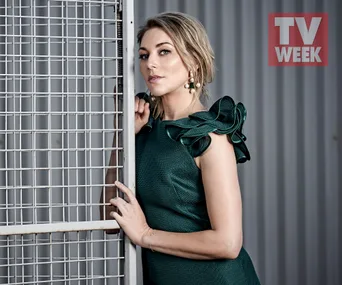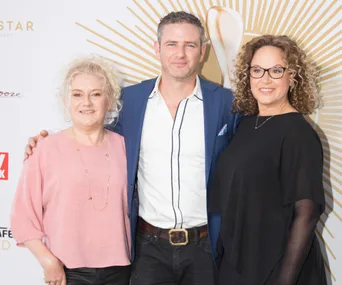Kaz Proctor has been at the centre of some sensational storylines in Wentworth this season. It’s why TV WEEK was eager to chat to Tammy MacIntosh, 49, about life on the Wentworth lot and how she and friends Susie Porter and Celia Ireland have dealt with the “PTSD” of acting out their characters’ traumas on screen.
Is it just us, or does this season of Wentworth seem like the best yet?
I feel I say this every year, but when they send through the links [to preview the episodes], I go, “My God – this show is amazing!” I say it like an audience member, not as somebody who works on the show, but there just isn’t a weak link. Just when you think storylines for certain characters are done, and you ask, “What’s going to happen now?”, there’s a twist.
That’s why we love it, too…
They move forward. You don’t see it coming, and you unravel some piece of information you didn’t know about another character.
You sound like the rest of us – a giant fan.
I’m a fan girl, definitely! And it’s a cool thing. I was saying to Celia [Ireland, who plays Liz Birdsworth] yesterday, and talking to Susie [Porter, who plays Marie Winter] on the phone last night that it’s great to watch the show and know you’ve done things in your career you never imagined you had in you. The depth of the psychological trauma, the violence, the high-stakes survival of the women… When you watch yourself doing it a year later [when it goes to air], it makes you proud.
How so?
Well, number one, that you’ve been given that material. And number two, that you’ve done that material with a great group of, mainly, women. Don’t get me wrong – the boys are amazing too – but it’s just such a great group of women, with absolutely no egos. There are no prima donnas, no “I want my name on a trailer” – none of that.
That must be a relief, given how much time you spend filming together.
The places we have to go require every ounce of our energy, attention, research, rehearsal and commitment. If you’ve got time to be a prima donna, you’re not doing the job!
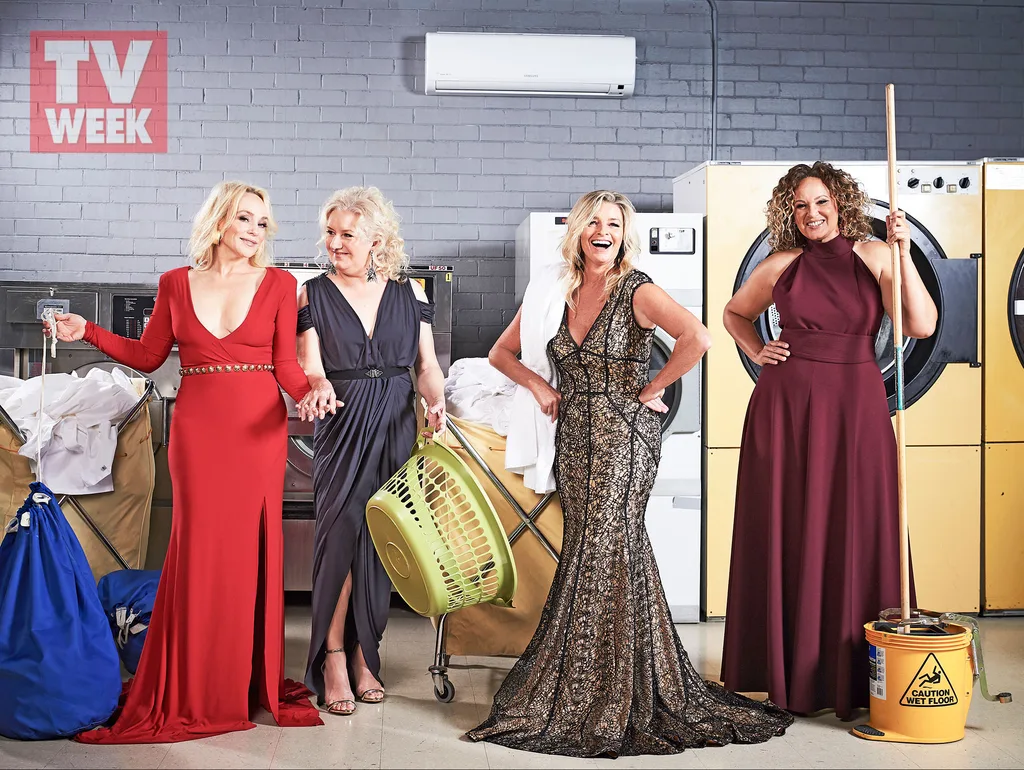
“There are no prima donnas!” Tammy says of the cast.
It must take it out of you all, filming such intense drama each week…
I was thinking about this last night, actually. It made me think, “How does everyone go home at the end of the day?” I realised I’d never actually thought about how the crew cope with what they see. I know that when I had to film those fights with Susie in the laundry, I went home feeling traumatised. And yes, it’s acting – and who was it that said, “Well, you just act!” – Dustin Hoffman I think. But I don’t know if you can just do that.
We’d imagine you have almost a physical reaction to what you’re playing, right?
You have to place yourself in a situation where somebody is actually going to kill you. You can’t act that! You have to find some type of moment in your life that will help you arrive at that place [emotionally].
How do you go home to your family after acting out something like that? Yours are based in Sydney while you film in Melbourne, right?
Yes. I have a husband and a son, and for this job, I couldn’t have done it in Sydney. I couldn’t imagine going home to my house, prepping dinner, doing all that, then looking at my scenes and researching the stuff I have to look at online. Some of the graphic, disgusting, horrifying things I have had to research while being on this show – child sexual abuse, alcoholism, beatings, having to research brothels, child trafficking – all that stuff. I’d go home and this was my “homework”.
It’s good that you’ve had that physical distance.
Totally. You have to be 100 per cent committed to this job. I’m so proud to have known and have worked with these women. They’re incredible.
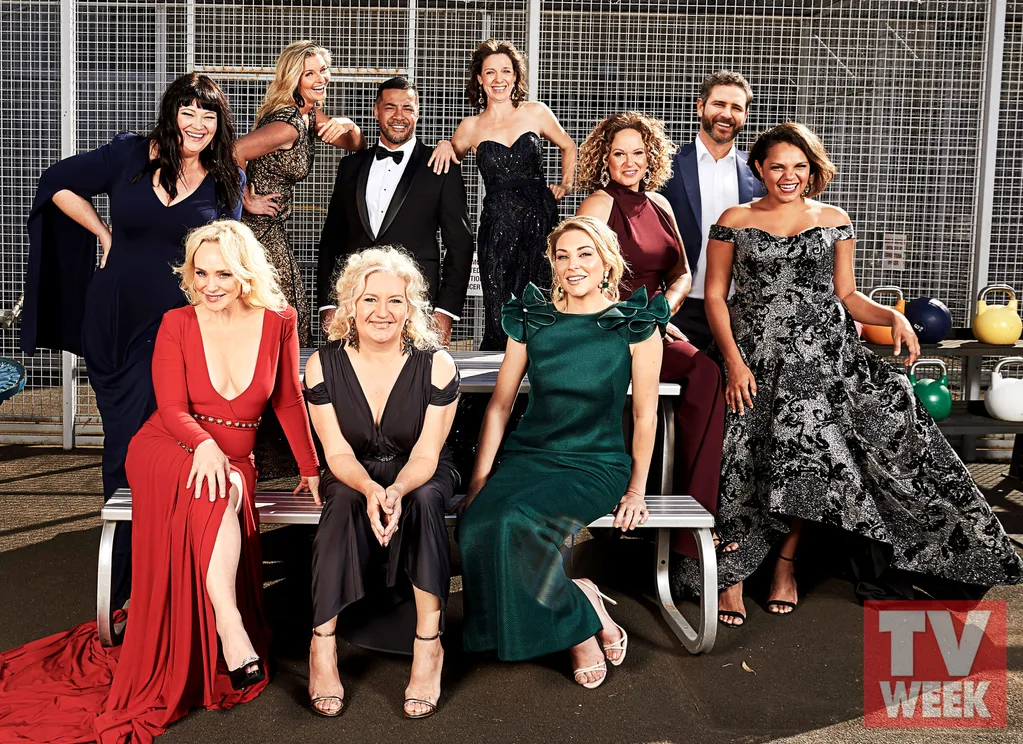
“I’m so proud to have known and have worked with these women.”
Do you think you all have a bit of residual PTSD from what your characters have been through?
We do! I call Celia “Shazza”, my “Melbourne Wife”. Shazza and I, whenever we come down to start a new series, we realise that when we get to the airport with our bags, we start to feel a little breathless. It’s akin to having been in a car accident and then going back to where the accident happened, a year later, at the same time of night. You get memory cell information going, “Alert! Alert! Don’t go there – danger! Danger!” And this place also holds the energy of everything that has happened here.
We’re on set at the moment – you can really feel that.
You feel it, too! There’s a dark energy to it, and you clothe yourself in that energy. Celia and I will get down here and do our few days [filming in Melbourne], and then go home to Sydney in the afternoon and go, “Oh, my God – I can breathe again.”
Do you live together when you come down?
No, but Celia and I like to connect after each day. Or, if we have days off, we’ll go to the Botanical Gardens and walk it off; take photos of flowers and bees. We have a really great friendship that just works.
And that translates onto the screen – Caz is very protective of Liz. It’s beautiful.
It is. Poor Celia Ireland – she’s been here since day dot. And her character, in particular, has had nothing but intensely disabling alcoholism, grief, abandonment, dementia… all that.
How does Celia deal with it?
I don’t know how she’s done it for seven seasons. I guess we’ve all lived this stuff together. At the end of the day, we’ll give each other a hug and ask, “Are you OK? Shall we get something to eat? A cup of tea? I’ll pick you up in the morning…”
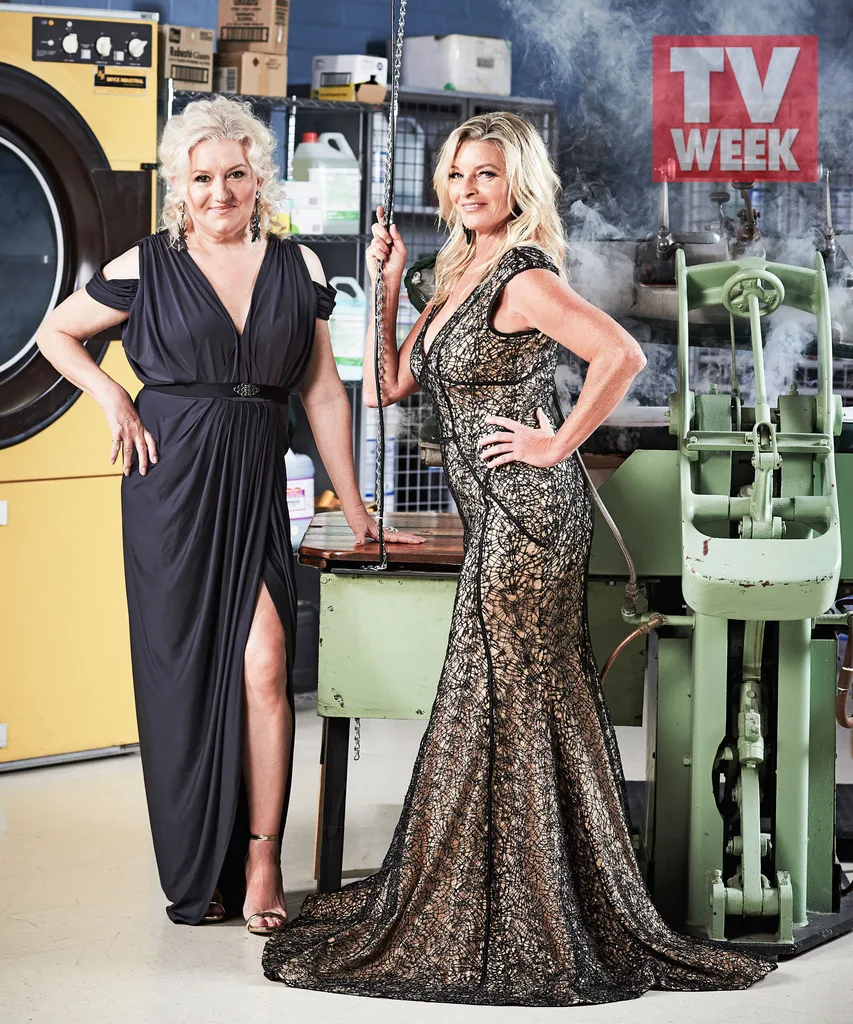
“Celia and I like to connect after each day.”
Along with Celia, you’re close friends with Susie too.
We are, yes. The really mesmerising thing about watching Susie is that she doesn’t play anything obvious. Sometimes your direction is very obvious – with anger, or guilt or a sly manipulation. Sometimes you see this stuff coming, but with her, she holds everything in this cloud of ethereal nothingness. You watch her eyes, and they roll over ever so gently, like rolling a little seed in your hand. It’s this really beautiful thing – you can’t take your eyes off her. She’s put a really subtle sophistication into Marie.
How did you all feel when you found out there would be 20 more episodes of Wentworth ahead?
How long did Prisoner go for? I’d be curious to find out. [Prisoner, the classic drama from which Wentworth is derived, ran from 1979 to 1986.] Because, this is one of those shows where as long as you have the same calibre of writers and actors come through, I can’t see an end date. I could watch this, as an audience member, for another four or five years, thanks very much.
What keeps us all so engaged?
There’s really nothing else like it. I think both men and women are really enjoying seeing these role reversals; seeing strong women who can do anything they put their minds to – whether it be violence, love, joy…. And I think people like seeing leading women in great roles; seeing women just rock it.
We love that you all watch the show just like normal punters – and love it as much as we do.
We do! And then we talk to each other, like, “Can you believe we’re even on this show?” We’ve had long careers in Australia, but this is the greatest gift – and Susie and Celia will say the same thing – we’ve ever been given. To stretch our wings, to play things we never thought possible, to take ourselves to places we never imagined we could – and then to survive them and come back from them! If you told me when I was 18, doing The Flying Doctors, that I’d be playing scenes like this, I would have gone, “I don’t think I would ever be able to do something like that.”

